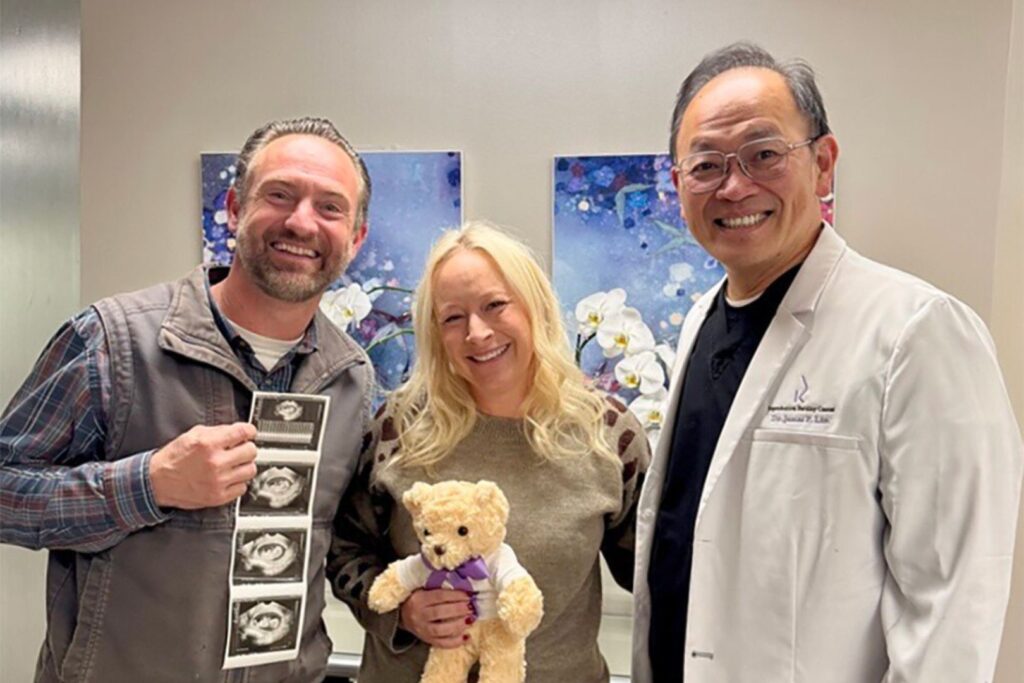Struggling with infertility is one of the last things most people expect when trying to grow their family. But fertility challenges are far more common than most realize, and yet, it is still rarely talked about openly.
That silence can leave people feeling isolated, confused, or like they’re the only ones going through it. But if you’re navigating fertility challenges, you’re not alone, and you don’t have to go through it without support.
Whether you’re an introvert, live in a rural area, fall into a unique age bracket, or are part of the LGBTQIA+ community, there’s a support system out there for you. You just might need a little help finding it.
Table of Contents
Online Communities For Support

Online forums, social media groups, and TTC (Trying to Conceive) communities have become safe spaces for people looking for fertility support. These digital spaces are powerful tools for connection, especially if you’re not in a big city or close to a fertility clinic.
There are many online TTC community boards to join. Many find it comforting to join Trying to Conceive forums or fertility support groups on social media sites like Reddit, Facebook, or even Instagram.
People from all over the world come together in these online groups to share their stories, creating a safe space to share the ups and downs of their fertility journeys. These groups often offer a sense of understanding and comfort that can be difficult to find in everyday conversations.
If you feel like no one around you gets it, there are thousands of others online who do.
Recommended Online TTC Communities
- Trying to Conceive Reddit:
- Trying to Conceive Facebook:
- Instagram Accounts to Follow:
These platforms can provide support and help you realize you’re not alone in your experience.
Finding Support as an Introvert

If you’re someone who doesn’t naturally gravitate toward group settings or sharing deeply personal stories with others, finding support can feel especially daunting. But just because you may be an introvert doesn’t mean you’re without options. You don’t need to be the loudest voice in the room to receive meaningful support.
Some great ways introverts can build a support system include:
Reading or Writing Anonymously on TTC Forums
Sometimes, just knowing others are out there going through the same thing is enough to make you feel less alone. TTC (Trying to Conceive) forums offer a space where you can read real stories, get honest answers, and ask your own questions whenever you’re ready.
You can participate as much or as little as you like. Many people read for months before ever commenting, and that’s perfectly okay.
You might find threads like:
Listening to Fertility-Focused Podcasts
Podcasts are like having a gentle, understanding friend in your earbuds. You can hear other people’s journeys, expert advice, and emotional validation, without ever having to speak.
Some comforting fertility podcasts include:
These podcasts don’t just cover the clinical side of fertility, like treatment options and cycle protocols, they also dive into the emotional and personal aspects of the journey. From navigating grief and loss to finding mental health support, practicing mindfulness, and exploring holistic tools like meditation, they offer a well-rounded perspective that speaks to the whole person, not just the patient.
One-on-One Fertility Therapy

If group therapy or support groups feel overwhelming or vulnerable, individual counseling with a fertility-informed counselor can be a quiet, safe place to untangle everything you’re feeling.
Fertility-informed therapists specialize in things like:
- Navigating grief and disappointment.
- Coping with anxiety and uncertainty.
- Processing trauma from medical treatments.
- Communicating with your partner about next steps.
- Finding peace with decisions around third-party reproduction, child-free living, or donor conception.
Therapy doesn’t have to be dramatic or intense, it can simply be a space where someone holds your story with care, no matter where you are in your journey.
Additionally, many therapists offer telehealth sessions, so you can talk from the comfort of your home.
Journaling

If you’re not ready to talk to others, writing to yourself can be incredibly grounding. Whether you’re writing letters to your future baby, documenting cycle updates, or just venting emotions onto the page, journaling gives you a place to feel without needing to explain.
Remember, support doesn’t have to be public, it just has to feel right for you. Even a quiet connection can be deeply powerful.
Age-Specific Fertility Support

Your age can shape not only your fertility options but also the emotional landscape of your journey, and that makes a big difference in what kind of support feels relevant and helpful.
Here’s how support needs tend to evolve at different life stages:
In Your 20s and Early 30s
You may be early in your fertility journey, possibly exploring options like egg freezing or just beginning to try. If you’re not surrounded by friends going through the same thing, it can feel isolating.
Support tips:
- Look for young adult fertility groups that focus on proactive fertility education.
- Explore online egg-freezing communities.
- Seek out clinics that take the time to walk you through your options gently, without pressure.
Mid-30s to Early 40s
At this stage, many individuals and couples are actively pursuing treatment like IVF, IUI, or diagnostic testing. There may be a greater sense of urgency, and that can bring up high emotions.
Support tips:
- Join groups that are specifically for IVF or secondary infertility, where people are in the same stage of treatment.
- Consider support groups led by fertility therapists or held by clinics, virtual or in-person.
- Be mindful of mental health and make space for grief, frustration, and optimism to coexist.
Mid-40s and Beyond
Trying to build a family in your 40s can come with an entirely different set of questions, emotions, and considerations. While it’s true that egg and sperm quality may decline with age, and pregnancy risks can be higher, it’s also a time when many people feel more grounded in who they are and what they want.
Still, navigating the fertility process at this stage can feel uniquely overwhelming. You may be weighing the emotional toll of multiple treatment cycles, facing pressure from doctors or timelines, or beginning to explore new paths like egg donation, embryo donation, or surrogacy.
And that openness takes courage.
Support tips:
- Connect with groups focused on advanced maternal age.
- Find counseling that specializes in fertility transitions, identity, and closure.
- Explore social media accounts and stories from others who became parents later in life.
- Give yourself permission to ask the tough questions that could be about your next step medically, your emotional well-being, your partnership, or your evolving vision of family.
No matter your age, your experience is valid, and there’s no such thing as “too late” when it comes to finding support. There’s a community out there that understands your unique stage of this journey.
Fertility Support For the LGBTQIA+ Community

Fertility support for LGBTQIA+ individuals and couples requires a different kind of care, one that understands the specific legal, emotional, and medical needs involved.
In many spaces, LGBTQIA+ families are often left out of the conversation. This is why building a support system that centers and affirms your identity is so important.
What LGBTQIA+ individuals often need support with:
- Navigating sperm/egg donors and gestational carriers.
- Understanding legal rights, second-parent adoption, and parental recognition.
- Finding inclusive providers.
- Dealing with trauma from previous medical bias or discrimination.
- Building family in a way that may look different from the “standard” journey.
Ways to find LGBTQIA+-affirming support:
- LGBTQIA+ fertility groups on Reddit or Facebook
- Clinics with diversity training and an inclusive intake process (like RFC)
- Advocacy organizations like Family Equality or The LGBTQ+ Fertility Network
Your family deserves to be built on a foundation of love and safety. That begins with having the right support behind you.
Support From Your Fertility Clinic

Sometimes, the most powerful part of your support system can be found right at your clinic. At Reproductive Fertility Center (RFC), we believe that fertility care should go beyond tests and procedures. It should feel personal, encouraging, and full of compassion.
As a fertility clinic, we know that it takes a collective effort to support those on their fertility journey. That’s why it’s important to seek support and reassurance and you can find it even in the clinic!
At RFC, we understand that the fertility journey can be challenging, and we’re committed to providing unwavering support to our patients every step of the way.
We believe that when each patient walks through our doors, they become a part of our RFC Family. Our goal is to treat patients with the same care and compassion that we would extend to our own family members and to offer encouragement and support in any way possible.
Here’s how we support you:
- We take time to listen to your story and understand your goals.
- We guide you with compassion through every step, every option, and every outcome.
- We offer access to both online and in-person fertility education, as well as real stories from. patients.
- We support all kinds of families, single parents, LGBTQIA+ couples, those facing secondary infertility, and more.
Read Fertility Stories From Others
Read the stories of past patients who have shared their journeys to bring awareness to infertility and show that struggling with fertility is more common than most may assume.





